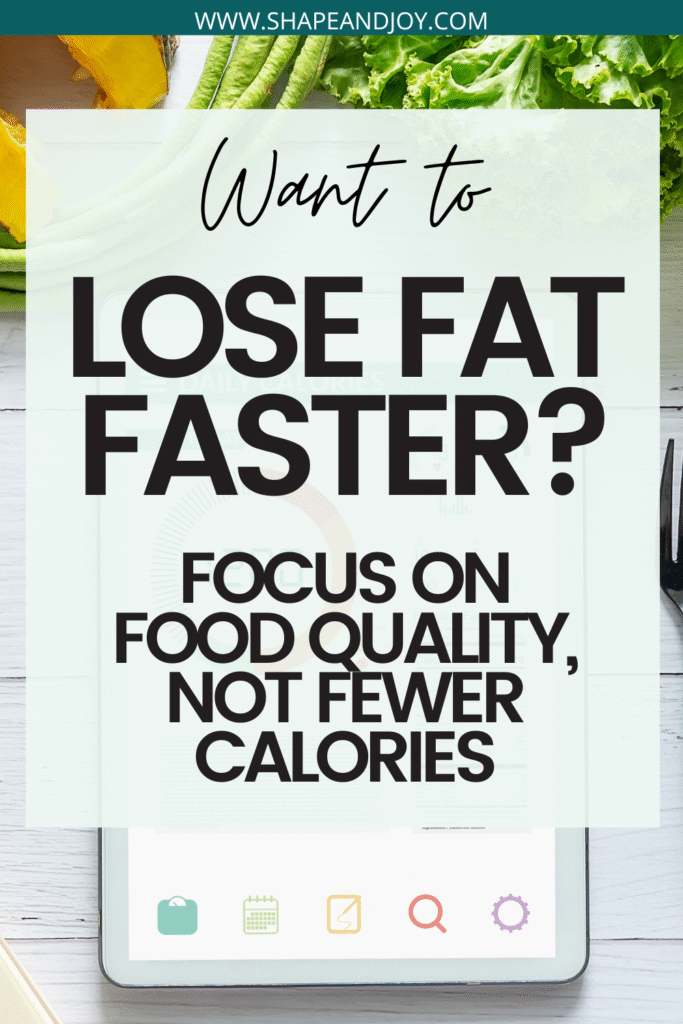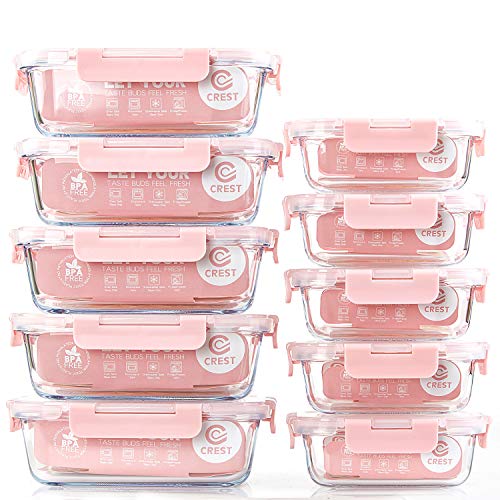This post may contain affiliate links, which means that I may earn a commission if you click on the link, with no cost for you. It’s one of the ways I support my blog. You can read more about this here.
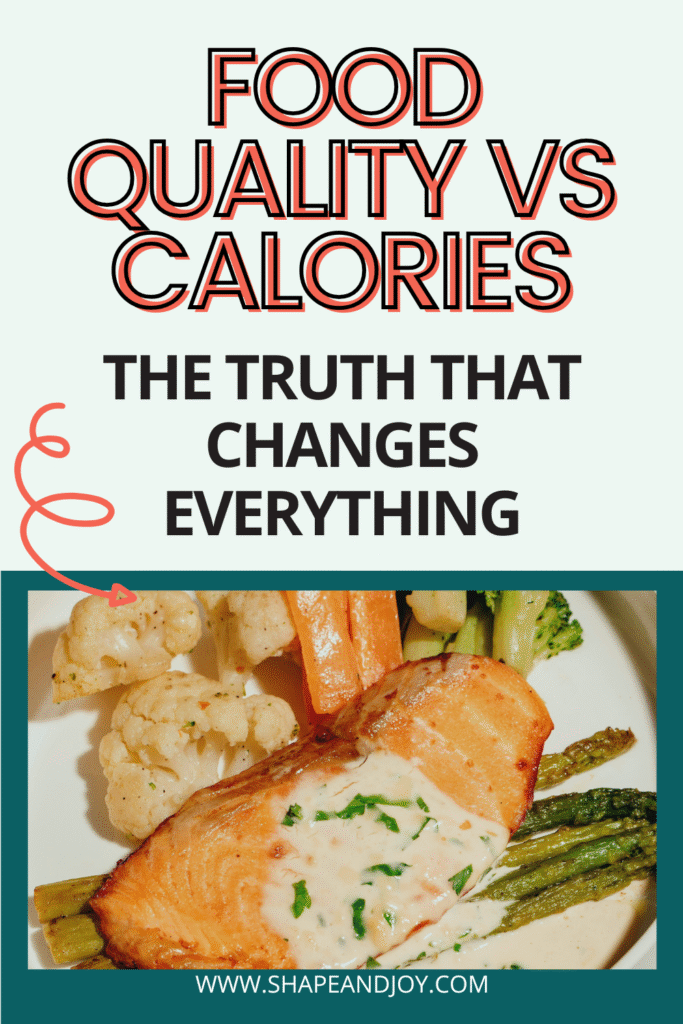
If you’ve ever found yourself eating low-calorie rice cakes while dreaming about real food, or tracking every calorie only to stay stuck at the same weight, you’re not alone. The obsession with “calories in versus calories out” has convinced millions that eating less is the only path to fat loss.
But here’s the truth: food quality matters more than calorie quantity, especially if you want long-lasting results, balanced hormones, and a flat belly you don’t have to starve for.
This post explains exactly why food quality is the real driver of fat loss, not just how many calories you eat. We’ll break down the seven key reasons choosing nutrient-rich foods leads to better results than just cutting calories, and how your body responds very differently to 1,500 calories of whole foods compared to 1,500 calories of processed snacks.
And if you’ve ever wondered why detox teas, no carb diets or 3 day detox cleanses don’t work long term, you’re about to understand exactly why.
Let’s dive in.
1. Food Quality Controls Your Hunger Hormones
Foods high in protein, fibre, and healthy fats naturally regulate ghrelin (your hunger hormone) and leptin (your fullness hormone). Processed foods, even when “low calorie,” cause spikes in hunger and cravings.
That’s why you can eat 100 calories of crisps and still be hungry, versus a 100-calorie boiled egg that keeps you full for hours.
Fat loss isn’t just about eating less, it’s about craving less.
If you’re serious about upgrading your food quality and avoiding processed snacks, invest in a good meal prep container set that you actually like using.
2. High-Quality Foods Boost Metabolism Through the Thermic Effect
When you eat high-quality foods, especially protein, your body burns more calories simply through digestion. Protein-rich and fibre-heavy foods create a higher thermic effect, meaning you burn more calories processing them.
Processed foods? Almost none.
This is a key reason food quality beats generic calorie counting for true fat loss.
3. Nutrient-Dense Foods Support Hormones and Reduce Belly Fat
Fat loss is regulated by hormones such as insulin and cortisol. Foods that burn fat fast, like vegetables, lean protein, healthy fats, and flat belly foods such as avocado, berries, and greens, keep these hormones balanced.
Meanwhile, low-quality processed carbs spike insulin, promote fat storage, and make belly fat harder to lose.
If your hormones aren’t balanced, fat loss will always feel like pushing a boulder uphill.
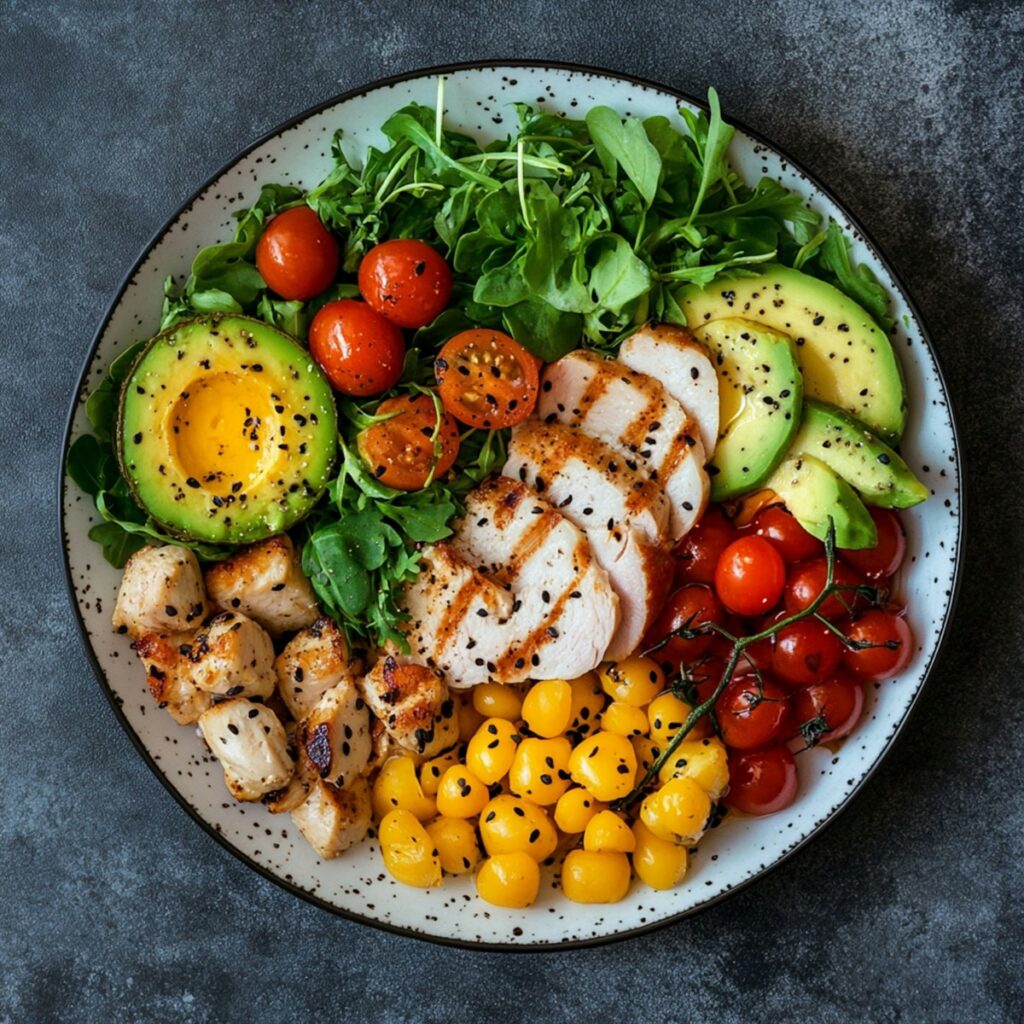
4. Whole Foods Improve Digestion and Reduce Bloating
If your gut isn’t absorbing nutrients properly, fat loss slows down, no matter your calorie intake. Eating high-quality foods supports gut bacteria, improves digestion, and reduces bloating.
Flat belly drinks, stomach cleanse gimmicks, and body detox cleanse products can’t fix poor diet and nutrition, but whole foods can.
Better digestion equals better fat loss.
📌 Pin this for later! ⬇
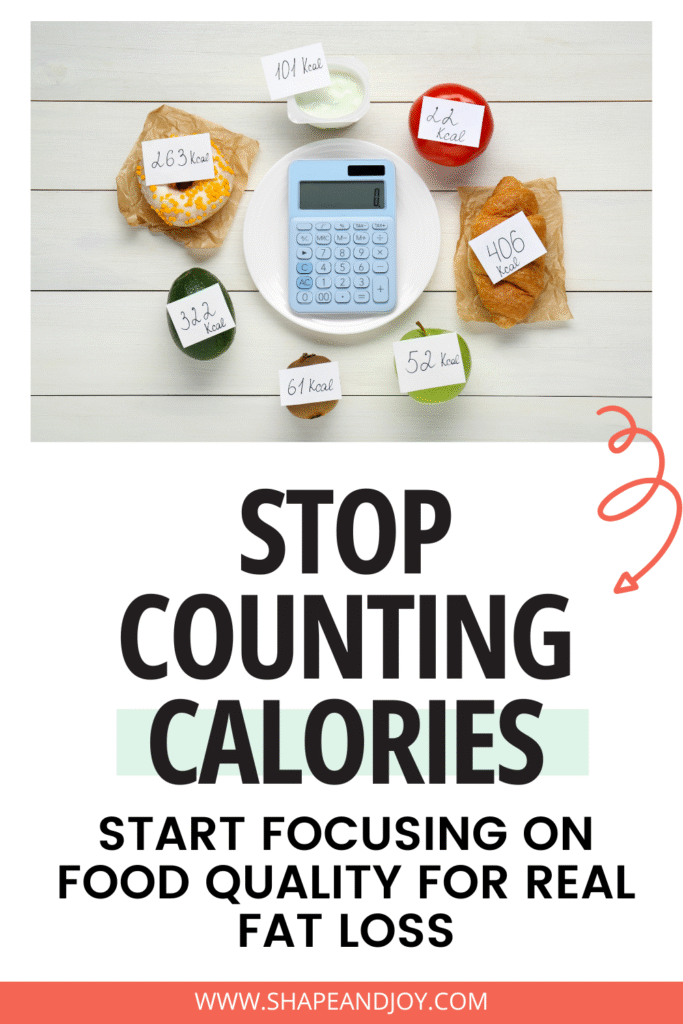
5. Processed Foods Trigger Cravings and Overeating
Ever wondered why you can’t stop at “just one biscuit”? Processed foods are designed to hijack your hunger and pleasure centres. They’re calorie dense and nutrient poor, so your body keeps asking for nutrients even after you’ve eaten enough calories.
That’s why a no carb diet or ultra low calorie plan often fails, it ignores nutrition and triggers cravings.
If you want your mind absolutely blown, the book Salt Sugar Fat by Michael Moss exposes exactly how the food industry manufactures addiction into processed foods, and why your body is literally wired to overeat them. It’s a must-read if you want to understand the science behind cravings and break free from them for good.
6. Quality Foods Lead to Natural Calorie Reduction (Without Tracking)
When you focus on food quality, you naturally eat fewer calories without trying. Real foods are more filling, more satisfying, and harder to overeat. Choosing the best foods for fat loss, those high in volume but low in calories, means you can eat more and weigh less.
This is the key to achieving a healthy weight without constant restriction.
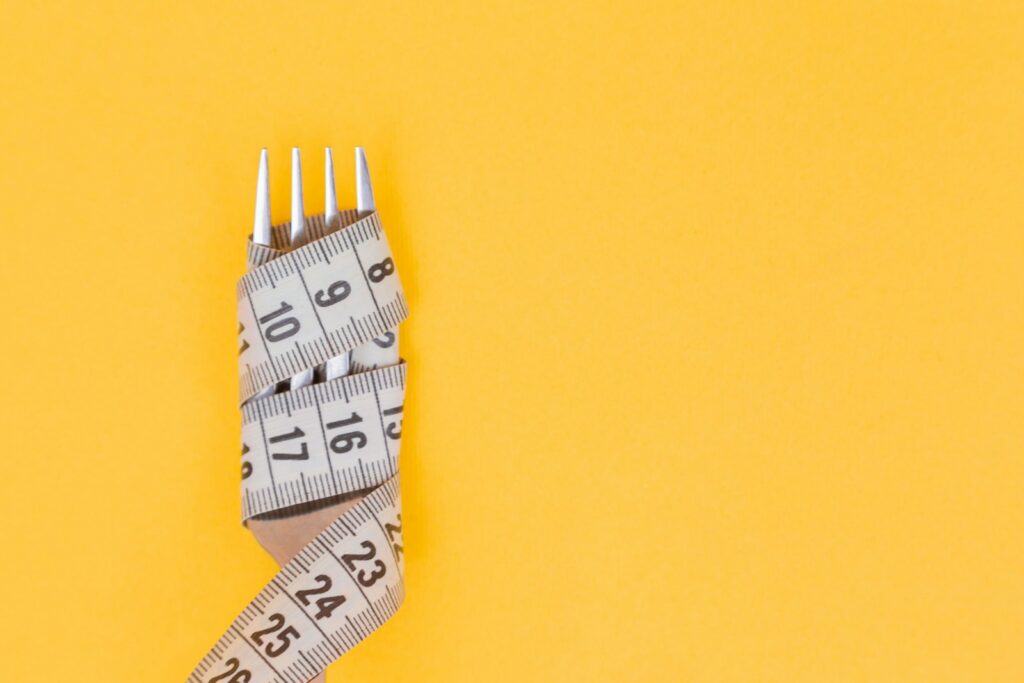
7. Food Quality Impacts Long-Term Results (Not Just the Scale Today)
Low-calorie junk might help you lose water weight in the first week, but it won’t help you burn fat long term. Quality foods improve metabolism, muscle preservation, hormone health, and energy levels, meaning your body becomes better at fat loss over time.
That’s how you lose belly fat and keep it off.
This also explains why detox programs often fail. Which is exactly what we uncover in the next article: Why Detoxes Don’t Work (and What to Do Instead).
And if you’re wondering where carbs fit into this fat loss equation, you’ll definitely want to read: Carbs: Friend or Foe? The Real Science Explained.
Read These Next
- Why Detoxes Don’t Work (and What to Do Instead)
- Carbs: Friend or Foe? The Real Science Explained
- The Truth About Fats: Which Ones Actually Help You Burn Fat
Conclusion
Calories matter, but food quality matters more. When you eat nutrient-dense foods, your body naturally burns more fat, regulates hormones, improves digestion, and reduces cravings.
You don’t need extreme restriction or constant calorie counting, you need better quality fuel.
Focus on quality first, and the quantity takes care of itself.
Next Steps
“Nourish your body and it will take care of the fat loss for you.”
Read This Next: Why Detoxes Don’t Work (and What to Do Instead)
Check out the full series: 10 Nutrition Myths That Are Sabotaging Your Health (and the Truth Instead)
📌 Pin this for later! ⬇
